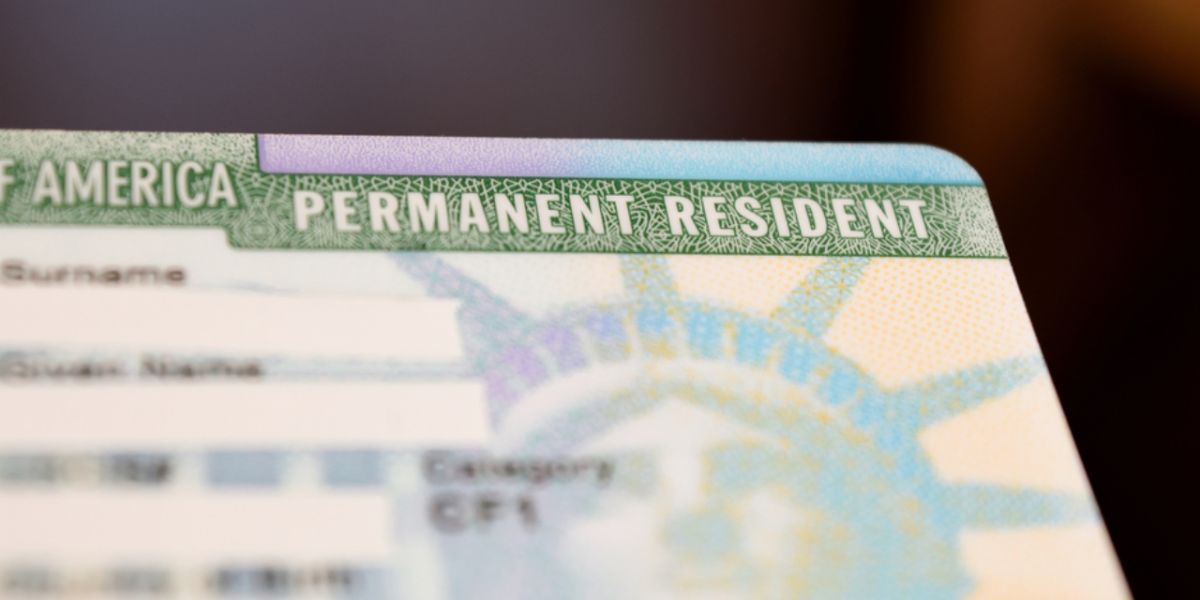
Thailand is one of the most popular travel destinations in the world. The country's friendly climate, stunning landscapes, and rich cultural heritage make it highly attractive to visitors from all over the world.

However, Thailand is more than a popular vacation spot. Some expats, having visited the country a few times, fall in love with it and decide to move there permanently.
So, is moving to Thailand a good idea? And if so, what are your options for a long-term stay?
Why move to Thailand?
There are a multitude of reasons why you may want to make Thailand your home.
Many people flock to Thailand for the country's famed laid-back lifestyle. A warm climate, beautiful beaches, and friendly people make life ideal.
The idyllic scenery is backed up by an attractively low cost of living. Thailand is a popular destination for downshifters as it offers all the benefits of modern living — but at a lower cost. Even in big cities, rent is very affordable, and daily expenses are easy to manage even on a modest income. According to Numbeo, for instance, the cost of living in Bangkok is 60.3% less expensive compared to life in New York.
Good to know:
*Downshifting is a movement that became popular in the early 1990s and includes a shift from a stressful but financially rewarding career towards a more fulfilling lifestyle that may bring in less income but allow for more free time and less pressure.
Depending on where you plan to settle in Thailand, you will have access to a variety of amenities. Big cities like Bangkok offer all the benefits of city life, from a developed infrastructure to exciting nightlife. If you are looking for some peace and quiet, smaller cities, resort towns, and islands offer a slower pace and an even lower cost of living.
Thailand may not be the world's most obvious destination when it comes to building a career. However, it does offer lots of work options — especially for new graduates and those looking to make a change. English teaching is one of the most popular jobs for new expats — and a foot in the door in Thailand's job market.
While many people move to Thailand for various reasons, two groups seem to have taken a particular liking to the country: retirees and digital nomads.
Many foreigners choose to retire in Thailand for various reasons, including the low cost of living and the option to apply for a retirement visa. The 2024 Annual Global Retirement Index ranked Thailand as the 12th best country for retirement in the world.
Digital nomads are another group that finds Thailand a highly attractive destination. The country's good internet, low cost of living, and relatively simple visa procedures make it a great place for remote workers. Bangkok, Chiang Mai, Phuket, and Koh Lanta are among the top destinations for digital nomads in Thailand.
Good to know:
Thailand launched the Destination Thailand Visa (DTV) in June 2024, which allows digital nomads to explore Thai culture while working, encouraging more tourism and, therefore, uplifting the economy.
Is it possible to become a resident in Thailand?
Yes, it is possible to become a resident in Thailand — provided you meet certain criteria established by the immigration authorities. Becoming a permanent resident in Thailand has many advantages, as you won't need to keep applying to extend your stay in the country. It also gives you more freedom to buy accommodation, and it makes getting a work permit easier, too.
The Permanent Residency never expires but can be revoked. After having PR status in Thailand for 10 consecutive years, you can apply to become a naturalized Thai citizen.
You will need to apply for permanent residency at the Thai Immigration Bureau. The bureau grants permanent residency to a maximum of 100 people of each nationality per year, and the application process can take up to a year.
How to get permanent residency in Thailand?
To apply for PR status, you need to have had a Non-Immigrant Visa in Thailand for at least 3 years before submitting your application. This will involve showing evidence of three consecutive one-year visa extensions. Applicants will also need to prove that they have had a valid work permit for those 3 years and that they earn a monthly income of at least THB 80,000 if they are single.
You will also need to justify that you wish to live permanently in Thailand for one of these main purposes:
- investment (you will need to show proof of having THB 3–10 million invested in Thailand);
- business/employment;
- family (this applies if you are married to a Thai citizen or a foreigner with a residency permit);
- academic/expert;
- retirement.
Any other reasons are at the discretion of the Thai immigration authorities.
Note that the list of the criteria for application depends on the category in which the application is made.
What documents are needed to apply for permanent residency in Thailand?
The opening date for applications varies each year and is announced by the Minister of Interior. Once the announcement has been made, applications for permanent residency can be submitted up until the last working day of the year.
You will be required to apply in person at the Immigration Bureau, where the officials will take your fingerprints to check that you have a clear criminal record. An application should contain a detailed and precise explanation of the reasons why you are requesting permanent residency. The clearer you can make this information, the quicker the relevant officials can make their decision.
Immigration officers will grant applicants a 180-day extension of stay from the date they receive the submitted application, and they will be granted another 180 days after that until the Immigration Commission releases the results of the applications.
You will need to submit a completed TM.13 application form to the Immigration Bureau, along with the following documents:
- your passport;
- proof of entry into Thailand;
- your work permit (if applicable);
- a photo taken within the last 6 months (4 × 6 cm);
- THB 7,600 as an application fee.
Once the application has been reviewed, applicants will be invited to an interview with the immigration officers. During the interview, they will be tested on their understanding of the Thai language, among other things. If applicants do not turn up for this interview without a good reason, their application will be canceled.
If your application for permanent residency is approved, the fee is THB 191,400. You will be issued a blue residence book, and you will then be required to register your place of residence in Thailand and obtain a certificate of residence. A week after receiving this certificate, you can then apply for a certificate of alien identification at your local police station. This is basically a foreigner's ID card, and you must re-register at the police station every year.
Where to submit the documents for permanent Thai residency
In Bangkok: Contact Sub-division 1, Immigration Division 1, The Government Complex, Building B, 2 Floor, Counter D, 120 Moo 3, Chaengwattana Road, Laksi District Bangkok 10210.
In other regions, contact the local or nearby Immigration Office.
Click here to download the application forms.
How to apply for the Thailand Privilege Card
In addition to the traditional way of obtaining a Thai residency, there is also the fast-track option known as the Thailand Privilege Card. As you may have guessed from the name, this type of visa is available to those who have the means to pay for convenience.
So, what is a Thailand Privilege Card?
The Ministry of Tourism and Sports introduced the Thailand Privilege Card in 2024 to attract investors and wealthy visitors to the country and give expats living in the country an additional option for organizing their long-term stay. The Thailand Privilege Card is classified as a Privilege Entry Visa and allows foreigners to stay in the country for 5, 10, or 20 years.
Currently, there are seven different varieties of the Thailand Privilege Card. The main difference is in the length of stay allowed and the number of people for whom it is valid. All Thailand Privilege Cards come with a set of extra perks that include:
- express immigration pass at the airport;
- airport pick-up;
- access to executive lounges;
- access to a 24-hour contact center;
- complimentary spa services.
How to apply for the Thailand Privilege Card?
You can apply for the Thailand Privilege Card from both Thailand and abroad. In most cases, the process will go as follows:
- you will need to send a copy of your passport and application form to an accredited Thailand Privilege Card agent;
- the agent will then initiate the process by working with the Thailand Elite Office, Ministry of Foreign Affairs, and Immigration Bureau. They will need to perform a criminal background check and look into your immigration history. Depending on where you come from, this process may take from 1 to 3 months;
- once you've passed the background check and your application has been approved, you will need to transfer the Thailand Privilege Card membership fee. The cost of the Thailand Privilege Card ranges from THB 900,000 (for a 5-year residency permit for one person) to THB 5 million (for a 20-year residency for a family). Once you've selected your residency program, you can make the payment via a bank transfer;
- once your transfer has come through, you will receive a membership ID and further instructions on how to receive your physical visa. There are several options for that:
- you can receive your Thailand Privilege Card at the Thai embassy or consulate in your home country,
- you can also pick up your Thailand Privilege Card upon arrival in Thailand right at the airport.
Important:
If you are already located in Thailand, your visa may be issued at the Immigration Bureau in Bangkok.
The Thailand Privilege Card application process may take 1 to 3 months, depending on your country of origin and other related circumstances.
Useful links:
We do our best to provide accurate and up to date information. However, if you have noticed any inaccuracies in this article, please let us know in the comments section below.








